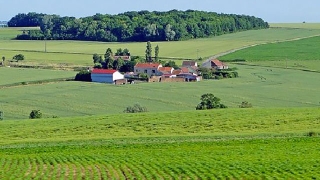Agriculture, EU – Baltic States, Legislation, Markets and Companies, Modern EU
International Internet Magazine. Baltic States news & analytics
Wednesday, 24.04.2024, 19:43
New rules for organic farming: a new Regulation is on the way
 Print version
Print version |
|---|
European organic sector plays a vital role in European agriculture. Thus, land used for organic farming grows at around 400,000 hectares a year; “organic market” is worth around €27billion (some 125% more than ten years ago); there have been already over 271,5 thousand registered organic producers at the end of 2015 (increase of 5.4% compared to 2014).
Commissioner for Agriculture and Rural Development, Phil Hogan underlined that the organic sector in the EU states has been steadily increasing in importance – by 125% over the past ten years; the organic market is worth €27 billion. However, further growth was compromised by the outdated rules.
The European organic sector is on an upward trajectory and the new Regulation will support the sector's growth by providing an appropriate legislation framework.
See Commission’s website on organic farming in:
https://ec.europa.eu/agriculture/organic/index_en
Producers, operators and trade partners now have two and half years to adapt to the new legislative framework which is also designed to protect the interests of the European consumers. “The new legislative environment is a growth-friendly one which will contribute to this increasingly important and mainstream sector achieving its undoubted potential, based on the principle of a level-playing field” added Commissioner P. Hogan.
The approval by the Council of the text of the Regulation allows existing and potential organic producers to plan with confidence and certainty on the basis of new rules which will enter into force on 1 January 2021.
Source: https://ec.europa.eu/agriculture/organic/sites/orgfarming/files/docs/body/organic-factsheet_en.pdf
The EU organic logo & labeling
Organic logo and labeling provide conditions for both production and marketing while improving organic farming standards and trade.
The code number in organic logo shall appear in the following ways: for example, AB-CDE-999 where "AB" is the ISO code for the country where the controls take place, "CDE" is a term establishing a link with the organic production like "bio" or "eko" and "999" is the attributed reference number composed of 1 to 3 digits.
Source:
https://ec.europa.eu/agriculture/organic/sites/orgfarming/files/docs/body/organic_logo-faq_en.pdf
A
list of approved control bodies and control authorities in charge of controls
in the organic sector in the EU states can be found at:
These control bodies can be distinguished by the code number that is visible under the EU organic logo.
According to the Commission’s website:
“The main objective of the European logo is to
make organic products easier to be identified by the consumers. Furthermore it
gives a visual identity to the organic farming sector and thus contributes to
ensure overall coherence and a proper functioning of the internal market in
this field”.
The labeling rules facilitate controls by
authorities and bodies designated or recognised in accordance with Regulations.
They also clarify the obligations of economic operators in respect of marking
the organic goods they produce. The common organic symbol is protected from
being used on non-organic products throughout the EU. This enhances fair
competition in the market, and of course, consumer protection.
The use of the logo and correct labeling is
obligatory for all organic pre-packaged food produced within the EU states. In
certain cases, it is also possible to use it on a voluntary basis. This means
that non pre-packaged organic food produced within the EU or organic products
imported from third countries might display the logo.
The logo and the labelling rules are an
important part of the organic regulations. With this regulatory framework the
European Union provides conditions under which the organic sector can progress
in the line with production and market developments, thus improving and
reinforcing the EU organic farming standards and import and inspection
requirements.
The logo and the labelling rules are an
important part of the organic regulations. With this regulatory framework the
European Union provides conditions under which the organic sector can progress
in the line with production and market developments, thus improving and
reinforcing the EU organic farming standards and import and inspection
requirements.
Using the EU organic logo, consumers are informed about the place where the agricultural raw material used in this product have been farmed and a code number of the control authorities is also displayed.
Reference and citation from: https://ec.europa.eu/agriculture/organic/downloads/logo_en
More information in the following web-sites: - Questions and answers about the new rules on organic farming in:
http://europa.eu/rapid/press-release_MEMO-17-4686_en.htm
(from April 2018); Latvian version at: http://europa.eu/rapid/press-release_MEMO-17-4686_lv.htm.
- Factsheet on the
organic sector and the new rules; - Organic Farming
website; and - EU organic logo.
General reference:
Commission’s Statement “New rules for organic production”, by the Commissioner Phil Hogan.
Brussels, 22.05. 2018. In:
http://europa.eu/rapid/press-release_STATEMENT-18-3884_en.htm?locale=en








 «The Baltic Course» Is Sold and Stays in Business!
«The Baltic Course» Is Sold and Stays in Business!

